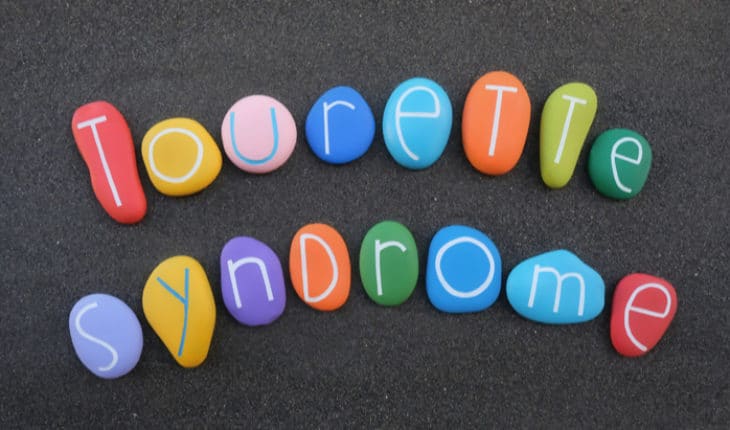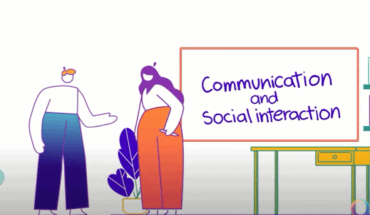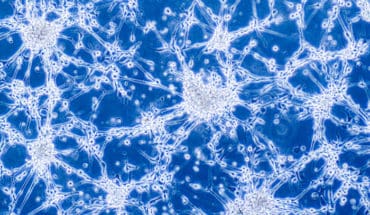Stimulating research gives new treatment hope for Tourette Syndrome.
New research has found that delivering electrical pulses to the wrist can significantly reduce the amount and severity of tics experienced by individuals with Tourette Syndrome (TS), giving new hope for an effective treatment.
Scientists from the University of Nottingham’s School of Psychology and School of Medicine used repetitive trains of stimulation to the median nerve (MNS) at the wrist to entrain rhythmic electrical brain activity – known as brain-oscillations – that are associated with the suppression of movements. They found that rhythmic MNS is sufficient to substantially reduce tic frequency and tic intensity, and the urge-to-tic, in individuals with TS. Their findings have been published today in Current Biology.
TS is a neurodevelopmental disorder that is usually diagnosed between the ages of eight and 12. It causes involuntary sounds and movements called tics. Tics are involuntary, repetitive, stereotyped movements and vocalisations that occur in bouts, typically many times in a single day, and are often preceded by a strong urge-to-tic, referred to as a premonitory urge (PU).
Professor Stephen Jackson has led this research and said: “We understand that the tics are caused by alterations in chemical signals within brain networks linked to the formation of habits and the initiation of habitual movements. These changes lead to hyper-excitability in the brain regions involved in generating movements. Our research successfully used pulses of electrical current, delivered at the wrist, to increase the strength of brain-oscillations that must ordinarily be reduced in strength to generate a movement, resulting in significantly reduced tics and in many cases removal of the urge-to-tic. This work has huge potential for the development of a safe and effective treatment for tics with no side effects.”
Potentially life-changing treatment
Nineteen people with TS took part in this study, which was funded by the charity Tourettes Action and the NIHR Nottingham Biomedical Research Centre. Participants were observed for random 1-minute periods, during which they were given constant rhythmic pulses of the MNS to their right wrist, and 1-minute periods during which they received no stimulation. In all cases the stimulation reduced the tics, and also the urge-to-tic, and had the most significant effect on those individuals with the most severe tics.
One of the participants was 21 year-old *Charlie, from Lincolnshire. Charlie has had TS for three years and found out about the study through Tourettes Action who have been supporting him and his family. He said: “I’ve tried a lot of different medications, therapies, relaxation techniques, support groups and diet changes to try to relieve my Tourette’s and although I was skeptical I was keen to be involved in this study.
The whole experiment was very surreal. When the electrical pules on the wrist started to increase, the tic urges decreased, which was a completely shocking experience for me, I was silent and still. For a further three sessions I noticed the same result, also the stimulation did decrease my tics at home. At the first session of the stimulation, I felt as if finally, a new treatment may have been found to free myself from my Tourette’s and wanted to cry with happiness.
This breakthrough could change individual’s mental stability in life and confidence, which is vital as Tourette’s Syndrome can destroy your life a tic at time. This breakthrough will hopefully change peoples lives for the good.”
Barbara Morera Maiquez was lead author on this study and said: “The results of this study were quite remarkable, especially in those people with the most severe tics and showed that this type of stimulation has real potential as a treatment aid for Tourette’s. Our aim is to develop a wearable ‘watch-like’ MNS stimulator that looks like an Apple watch or Fitbit and can be used by the individual outside of the clinic as and when they need to control their tics.”
Suzanne Dobson, Chief Executive of Tourettes Action said: “Tourettes Action are delighted to support this ground breaking research. There is no pharmaceutical treatment for Tourette Syndrome only drugs used to treat other conditions, currently the preferred treatments are the Psychological treatments – which are not easily available. This wearable and self-managing treatment could potentially change the lives of thousands of people living with TS. We will continue to support the team at the University of Nottingham as this amazing treatment continues to evolve.”
- Gut microbiome could delay onset of type 1 diabetes - 3rd April 2025
- The da Vinci 5 Robot Is Set To Transform Bariatric Care: - 31st March 2025
- Beyond money: the hidden drivers fuelling child food insecurity - 31st March 2025






